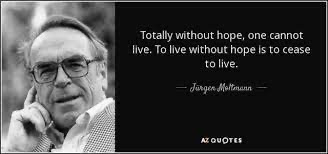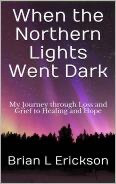How My Theology Has Changed, Thank God
Part V: The Theology of the Cross
As I completed my first year at the Lutheran School of Theology in Chicago, I found myself really enjoying the intensive study of theology, Bible and the history of Christianity. As my theology changed and grew deeper, I even caught a glimpse of the possibility of being a pastor after all.
However, I had a practical problem, with no easy solution. Pauline and I had no money. We discussed whether I should simply embark on another career or find a way to continue schooling. I had been working part-time on Saturday mornings with the Teamsters Union in west Chicago packing semi-trailers which then were lifted on to train cars and shipped to the West Coast. I approached management and asked if there were any full-time jobs available. Yes, I could be a Shipping Clerk, if I was willing to work the graveyard shift. And that is how the year went, driving to work in the dark and returning as the sun rose.
By fall I was once again deeply immersed in seminary studies and was soon exposed to an area of theology heavily studied and articulated by several professors at Luther: Martin Luther’s Theology of the Cross. Luther had become increasingly frustrated and incensed by the extreme legalism and the pomp and circumstance of the medieval Catholic Church, which he termed a Theology of Glory. What he saw in Jesus Christ was just the opposite, what he termed a Theology of the Cross. He argued, basing much of his thinking on the theology of St. Paul, that we humans tend to prefer a Theology of Glory: we want a God who comes with power and prestige to protect us from evil and pain and affirm who we are as human beings in our present context. In contrast, Luther posited that we can only know the real God through the “sign of opposites” of glory: through suffering, pain, alienation, abandonment and death. God comes to us not through nature or a glorified theology or the church, but through the suffering, death and humiliation of Christ on the Cross. In Luther’s own words from the 20th thesis of the Heidelberg Disputation: “It does [a person] no good to recognize God in his glory and majesty, unless he recognizes him in the humility and shame of the cross.” Luther’s main struggle was with the church, which he felt had neglected “salvation by faith alone through grace” and the “theology of the cross” and had become a place of legalism and “works righteousness.”
I found myself captivated by this “theology of the cross,” but I longed to understand how it might affect not only the individual Christian, but creation and the world of economics, politics and ethics among not only individual persons, but also human communities. Once again, Jurgen Moltmann came to the rescue. While I was working the shipping docks in Chicago, Moltmann was completing his second monumental book, The Crucified God, which I purchased as I stepped onto the campus at Luther Seminary.
 |
| German Soldiers in Prisoner-of-War Camp |
Having been released from the British prisoner-of-war camp [see previous blog post] and enraged by the holocaust and the destruction of his home country of Germany, he writes: “Shattered and broken, the survivors of my generation were then returning from camps and hospitals to the lecture room. A theology which did not speak of God in the sight of the one who was abandoned and crucified would have nothing to say to us then.” [Crucified God, 1]. He continues:
Whether or not Christianity, in an alienated, divided and oppressive society, itself becomes alienated, divided and an accomplice of oppression, is ultimately decided only by whether the crucified Christ is a stranger to it or the Lord who determines the form of its existence.
There is a good deal of support in tradition for the theology of the cross, but it was never much loved. It begins with Paul, to whom its foundation is rightly attributed, and then leaps forward to Luther, in whom it is given explicit expression, and is present today in the persecuted churches of the poor and the oppressed. [Ibid, 3]
Then Moltmann makes the move I had been looking for:
To take the theology of the cross further at the present day means to go beyond a concern for personal salvation, and to inquire about the liberation of humans and a new relationship to the reality of the demonic crisis in society. . .. To realize the theology of the cross at the present day is to take seriously the claims of Reformation theology to criticize and reform, and to develop it beyond criticism of the church into a criticism of society. What does it mean to recall the God who was crucified in a society whose official creed is optimism, and which is knee-deep in blood?
Jesus died crying out to God, “My God, why hast thou forsaken me?” All Christian theology and all Christian life is basically an answer to the question which Jesus asked as he died. Either Jesus who was abandoned by God is the end of all theology or he is the beginning of a specifically Christian, and therefore critical and liberating, theology and life. [Ibid., 4]
To articulate such a specifically Christian theology and apply it to the pain and suffering of the world was certainly a daunting task. And yet it was exactly the challenge for which I was searching.
At this point in my spiritual journey, I had long ago abandoned the notion of “exclusivity” and “exceptionalism.” At Concordia and in Chicago I had read several books by Mircea Eliade, the University of Chicago historian of religion, who had traveled the world studying ancient, tribal religion. He found tremendous correlations of thought, as ancient cultures tried to separate the sacred from the profane. Then there were the Greeks and Romans who also had their own deities, and the various great religions of the world I had studied in college. Each of them had unique insights helpful to me, and each had teachings with which I could not agree. Paramount among them, was the common teaching that the “gods” are often angry with humans, and we have to find a way to appease them, usually through some kind of sacrifice or offering.
Interestingly enough, we are again talking about “tribalism” in our culture, which is a group of like-minded folks who find their identity by defining themselves over against others, who are “wrong.” There is no doubt we humans have a tendency to think our meaning only comes through excluding others, thinking we are the exceptional ones. It had become clear to me that this is human sin, based on a misunderstanding of both our importance as humans and what God wants from and for us.
The theology of the cross also was beginning to bring me back into a closer relationship with God. In my junior and senior high school days, I had loved Lent, especially the mid-week Lenten services held those six weeks. I loved the haunting, minor-key Lenten hymns, with their powerful words:
What language shall I borrow
To thank thee, dearest Friend;
For this, thy dying sorrow
Thy pity without end?
Oh, make me thine forever
And should I fainting be;
Lord, let me never, never
Outlive my love to thee. [O Sacred Head Now Wounded]
Therefore, kind Jesus, since I cannot pay thee,
I do adore thee, and will ever pray thee,
think on thy pity and thy love unswerving,
not my deserving. [Ah Holy Jesus]
I also loved the sermons, especially those built around the “Seven Last Words,” which are the seven phrases or sentences Christ stated from the cross. I wasn’t conscious of it at the time, but I can see now that I was moving from seeing God as one who caused my sorrow and grief to one who promised to be with me in whatever sorrow and grief I would face in the future.
The next step was to come to a much deeper understanding of what we mean by a Crucified God, and how that theological orientation would affect my spiritual life, my life in the church, my teaching and preaching, my involvement in the pain and suffering of the world.
My next blog post will explore that challenge.

















